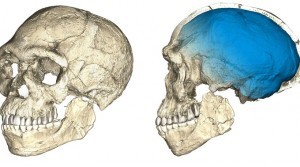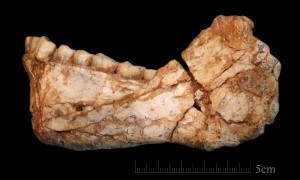Anthropologists have long sought to pin down the exact location of the proverbial “Garden of Eden” — the region of our planet where the earliest Homo sapiensemerged.
Over the last two decades, a combination of genetic evidence and data from the fossil record led scientists to conclude that the first members of our species evolved in Eastern Africa about 200,000 years ago.
But a new discovery suggests a more complex narrative for the origin of humans.
In a pair of papers published Wednesday in Nature, an international team of researchers describe 22 human fossils from northwest Morocco that are approximately 300,000 years old.
According to the authors, it is the earliest evidence of Homo sapiens ever discovered — by a long shot.
The unexpected location of the find, coupled with previous discoveries of early human remains dating back to 260,000 years in South Africa and 195,000 years in Ethiopia, cast doubt on the story that the first members of our species evolved in a single region of the African continent, study authors said.
“Our results challenge this picture in a number of ways,” said Jean-Jacques Hublin of the Max Planck Institute for Evolutionary Anthropology in Germany, who led the work. “There is no Garden of Eden in Africa, or if there is a Garden of Eden, it’s Africa. The Garden of Eden is the size of Africa.” Over the course of the team’s work, they discovered 18 additional hominin bones, as well as stone artifacts consistent with the dawn of the Middle Stone Age. They also found gazelle and zebra bones that suggested the animals were deliberately butchered and cooked over a fire.
more at: latimes.com
Ask me anything
Explore related questions






